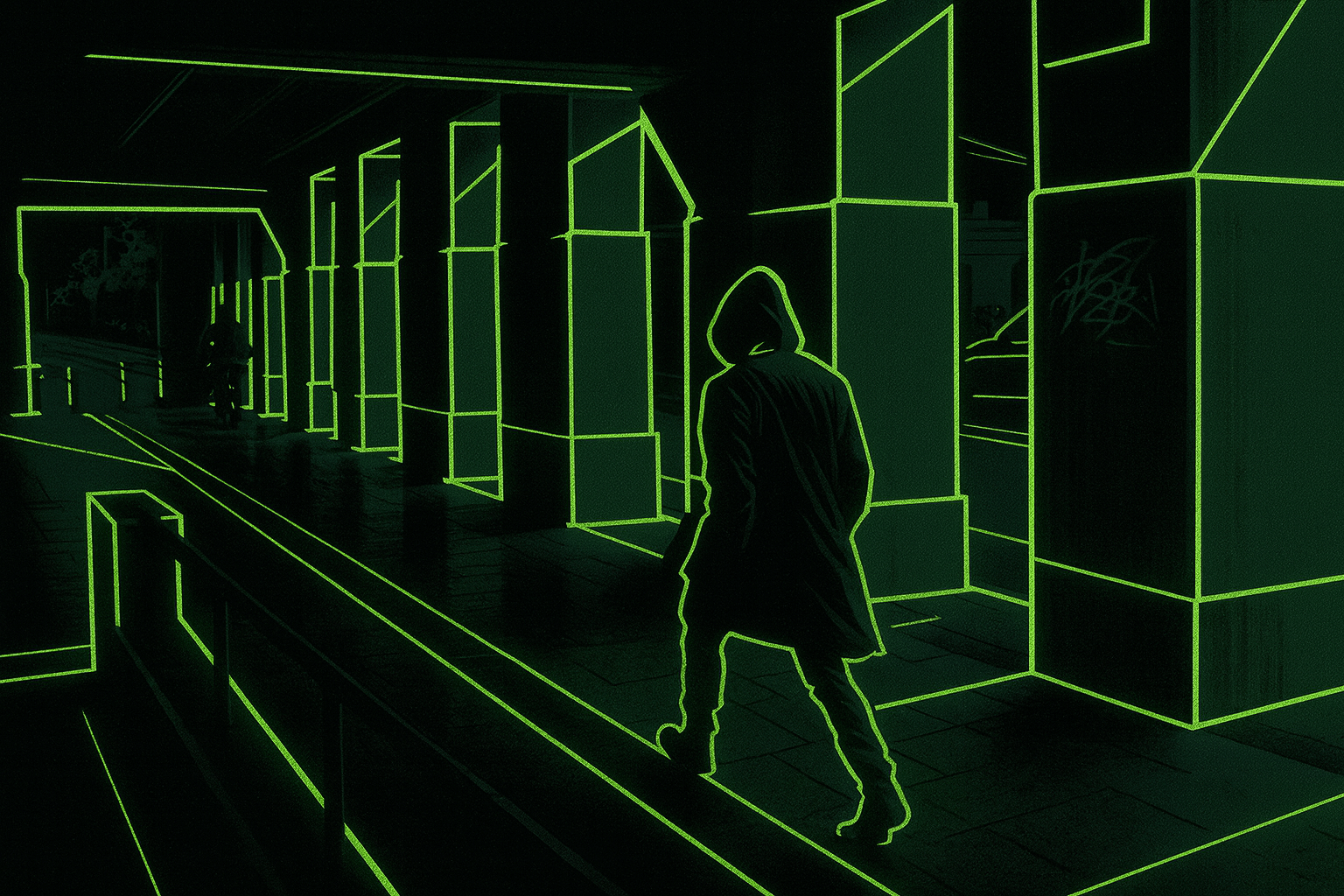You can’t automate rebellion or outsource awareness. Privacy isn’t about perfect setups, it’s about adaptability. This guide shows how to build an evolving privacy practice that survives constant change: rotating tools, testing for failure, and rebuilding before surveillance systems catch up. Adaptation isn’t reaction, it’s how you stay in the fight.
You can’t automate rebellion and you can’t outsource awareness.
Adaptation is the skill that keeps you alive when everything else fails. Not tools. Not policies. Not patches. Adaptation.
Because in a world where control systems rewrite themselves faster than you can download the next privacy app, the only edge you have left is your ability to evolve faster than they do.
Static Defenses Get You Killed
Most people want a finish line. They want to believe that if they just install the right OS, buy the right VPN, or lock their SIM to one carrier they’re done. Safe. Finished.
That mindset is death.
Control systems don’t stop. They mutate. They integrate AI analysis, biometric matching, predictive surveillance, and jurisdictional cooperation at machine speed.
Every static defense every “final setup” or “bulletproof stack” has a shelf life. When the system adapts, you either adapt back or get absorbed.
This is a fight of iteration.
Adaptation Is a Habit, Not an Event
People love the story of the grand act. One data leak, one protest, one dramatic “off grid” moment. But rebellion that lasts is quieter. Repetitive. Evolutionary.
You don’t just lock down once. You have to recalibrate daily.
Adaptation means constantly asking:
- What did I depend on this week?
- What new risk surfaced?
- What failure would cripple me if it hit tomorrow?
You can’t outsource that to a tutorial. You train it through motion through stress, experimentation, and friction. Every time a habit shifts, a pattern breaks, a dependency dies, you get sharper. That’s resistance as a process.
The Core Principle: Nothing Is Permanent
This applies to every layer of autonomy you build.
Your tools: Eventually deprecated, acquired, or banned.
Your hardware: Obsolescent by design.
Your backups: Only safe if regularly tested and refreshed.
Your habits: Useful until the system models them.
So you rotate. You refactor. You rebuild from scratch when necessary. Not because you’re paranoid, but because permanence is a luxury surveillance won’t let you have.
In the resistance game, the ability to rebuild fast is worth more than the illusion of permanence.
Adaptation in Practice
Here’s what it looks like in real life:
1. Tool Rotation
Cycle your privacy stack every few months. Try new browsers, new OS builds, new encryption layers. If your workflow can’t survive one tool dying, it’s too fragile.
Learn replacements before you need them.
2. Fail on Purpose
Simulate a breach. Kill a device. Disable your phone for a day. Then watch what collapses. The failures show you the blueprint of dependence. You can’t adapt what you don’t expose.
3. Diversify Your Risk
Never let one company, country, or protocol hold all your data or access. Even open source projects rot under dependency creep or age out into obsolescentence.
Have redundancies that don’t touch each other. If one stack dies, another activates cleanly, quietly, without panic.
4. Audit Your Habits
Every automation you accept, every convenience you add, is a small surrender.
Ask yourself weekly: what am I doing that’s too smooth?
Smooth is surveillance. Friction is freedom.
Add small manual steps. Pay bills manually. Swap devices for certain tasks. Use friction to slow down the data bleed. Adaptation begins with noticing what’s gotten too easy.
5. Detach from Identity
If your name, email, or device define you, you’ve already lost flexibility. Adaptable identities layered, pseudonymous, and situational give you movement.
You don’t need to disappear. You just need to stay unpinned.
The Emotional Side
Adaptation feels exhausting at first. Because comfort is a drug and you’ve been dosed with it since birth. The entire modern system runs on predictability: predictable logins, predictable habits, predictable outrage.
When you start breaking those patterns rotating setups, resetting rhythms you’ll feel untethered. That’s good. That’s freedom reconfiguring itself through discomfort.
But it’s not about perfection. You’ll slip. Revert. Get lazy. Then something will fail, and you’ll wake up again. That’s the loop.
Real autonomy is built through that repetition.
What Adaptation Feels Like
At first, chaos. Then curiosity. Then control.
You start seeing every system differently phones, networks, social platforms, even routines. You stop asking, “Is this safe?” and start asking, “How long will this hold?”
That question changes everything. It turns defense into discipline. Fear into foresight. Adaptation isn’t about escaping the system it’s about becoming ungovernable by it.
My Own Lesson in Adaptation
A few years ago, I lost access to an entire encrypted archive through stupidity. Gone. Two years of work. I thought I’d built something permanent. I was wrong.
Now every setup I use assumes failure. Every layer is portable, redundant, and tested under pressure.
It’s not perfect. But it doesn’t break anymore, it bends.
That’s the point.
Checklist: The Adaptive Mindset
- Assume change is constant, not optional.
- Rebuild often, not reactively.
- Design for failure, not faith.
- Prioritize flexibility over optimization.
- Stay curious complacency is capture.
If you can do that, you can survive whatever version of control comes next. Because there will always be a next.
Final Thought
Every empire of control depends on people staying predictable. That’s why adaptability is rebellion.
When you move differently, when you rebuild faster than they can patch, when you stop clinging to fixed systems, they lose their grip. Adaptation is a feat of endurance. The goal isn’t to win once, it’s to keep showing up long after they expect you to quit.
Stay fluid. Stay learning. Stay in the fight.
-GHOST
Written by GHOST, creator of the Untraceable Digital Dissident project.
This is part of the Untraceable Digital Dissident series — tactical privacy for creators and rebels.
Explore more privacy tactics at untraceabledigitaldissident.com.
